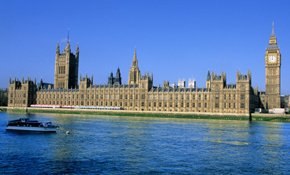John Humphrys asks: what should happen with MPs pay?
A noisy row has broken out this week over how much MPs should be paid. An independent body has recommended that their salaries should be hiked up by 11%. But many MPs, and all the main party leaders, have thrown up their hands in horror, saying it would be ‘wholly inappropriate’ for them to get such a boost to their earnings when most people are still seeing their living standards fall. As of now, though, the politicians have no power to prevent the rise. So what should happen?
There was a time, of course, and still in the living memory of many, when members of parliament earned no pay at all. They were supposed to earn their livings elsewhere and received only meagre expenses to cover certain costs they would incur in carrying out their public duties. It was a system designed for a world in which only the rich were supposed to have their hands on power.
The greater professionalisation of politics brought with it salaries and ever-expanding expense allowances. And the MPs themselves were in control of what money they could pocket from the public purse. So embarrassing was it for them in the eyes of the public when they voted themselves higher pay that an implicit deal was struck among them: they would keep their headline basic pay fairly modest and quietly make up the difference by awarding themselves ever more generous allowances they hoped the public wouldn’t notice.
We all know where that led: to the expenses scandal in the last parliament, which led to many MPs losing their seats in disgrace and quite of them going to prison. Things couldn’t go on like this, they concluded, so they set up a body, the Independent Parliamentary Standards Authority, IPSA, with the power to set MPs pay and reorganise the system of allowances. IPSA was to be sacrosanct: its decisions would be final and MPs would have to bow to what it decreed. That way, politicians hoped, they would avoid the flak they’d get from voters who otherwise would suspect them of always wanting to feather their own nests.
But it hasn’t turned out as easy as that. It is IPSA that has come up with the proposal that in 2015 MPs’ annual pay should go up by 11%, from £66,396 to £74,000. That would put their salaries at nearly three times the current average income of £26,500.
Senior politicians, alarmed at what the public would make of the bounty being offered them, were quick to rubbish the idea. Danny Alexander, the Liberal Democrat chief secretary to the Treasury, said the plan was “wholly inappropriate”. Philip Hammond, the defence secretary, said: “So long as I’m defence secretary, presiding over a situation where the troops that serve our country so brilliantly are facing a one per cent pay rise, I won’t be taking a pay increase.” A Downing Street spokesman said: “the cost of politics should be going down, not up”. And Ed Miliband, the Labour leader, called on all the party leaders to get together to stop the plan. “If the package of proposals being set out by IPSA is as reported, it cannot go ahead when people are going through the biggest cost-of-living crisis for a generation. We cannot have an outcome for MPs that does not command public confidence”, he said.
But IPSA is sticking to its guns. It points out that its plan won’t cost the taxpayer an extra penny because the overall increased pay bill of £4.6m a year will be offset by cuts to MPs’ perks, especially in relation to their pensions and to severance payments when they cease to be MPs. What’s more, they say, the plan is that after 2015 rises in MPs’ pay should be limited to the general average increase in earnings. Sir Ian Kennedy, the chairman of IPSA, said: “We are sweeping away the out-of-date and overly generous benefits and introducing a one-off uplift in pay. Crucially, thereafter MPs’ pay will be linked to everyone else’s”. Sir Ian claimed that since IPSA was set up in 2010 it had saved the taxpayer £35m.
Some MPs have come to the defence of IPSA, pointing out that MPs’ pay has fallen in comparison with other professions and that this has acted as a disincentive to able people who might otherwise want to enter public service. Some have pointed out that keeping MPs’ pay relatively low would mean that only those who are already rich would feel able to enter politics. Jack Straw, the former Labour cabinet minister, said: “You will go on recruiting people of some talent who have family money or who have got many fewer family responsibilities but you won’t get, importantly, recruitment from people of modest background.”
Others have argued that since MPs gave the power to set their pay to an independent body they have to live with the consequences. The veteran Tory MP, Sir Peter Bottomley, said: “Each leader will say this is the wrong amount at the wrong time. The fact is, it was the leaders who set up the IPSA system who are given the responsibility to set the level of pay and people can’t interfere with it. The only way MPs could overturn this is to defy their leaders and pass a law saying IPSA is abolished or it will be ignored. That’s impractical given the public interest in setting up IPSA in the first place.”
So there are two questions to be answered. First, who should decide what MPs’ pay should be, MPs themselves or the body they set up to do the job for them? And what should that pay be?










